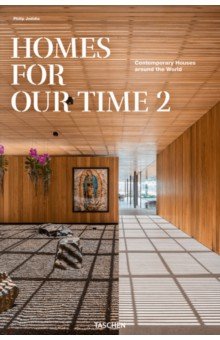Описание книги
Climate, environment, history, and technology are transforming architecture worldwide. The second volume in the Homes for Our Time series documents this housing revolution. What role do homes play in our endangered world? How can they innovate?
In Sri Lanka, Palinda Kannangara created the Frame Holiday Structure on a budget of $ 40,000. Built from steel scaffolding, exposed brick, and wood floors, the house can be easily disassembled and moved, adapting to the reality of the nearby floodplain. Luciano Lerner Basso's Fortunata House in Brazil accommodates the surrounding nature: it was built around a tree of an endangered species and sits upon stilts so as not to disturb the forest floor. Miller Hull's Loom House near Seattle has been called "the world's most environmentally ambitious home renovation" because of its reliance on recycled materials and its efficient energy use.
Modern architectural history has been viewed primarily from a Western perspective and formed by men. More than 60 buildings from Vietnam, South Africa, India, China, and beyond-designed by men, women, and collectives-mark the end of this era. There is no longer a predominant style, and there probably never will be again. With photos by renowned architectural photographers, and precise descriptions as well as drawings from architectural offices, Philip Jodidio charts the diverse, sustainable architecture of the future. The private homes featured range from modest to extravagant. A beautiful house is always also a dream-and this book invites you to do just that.
